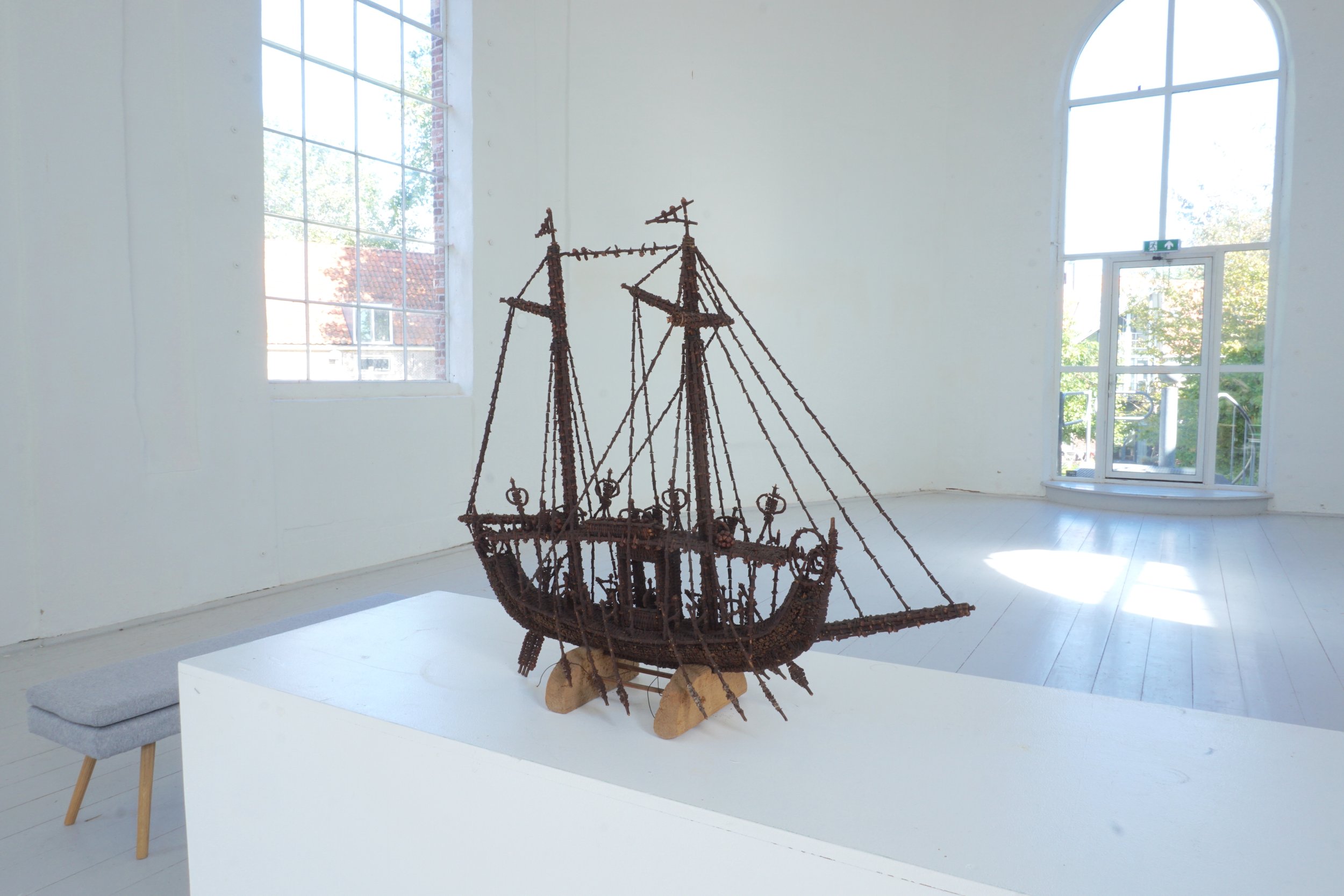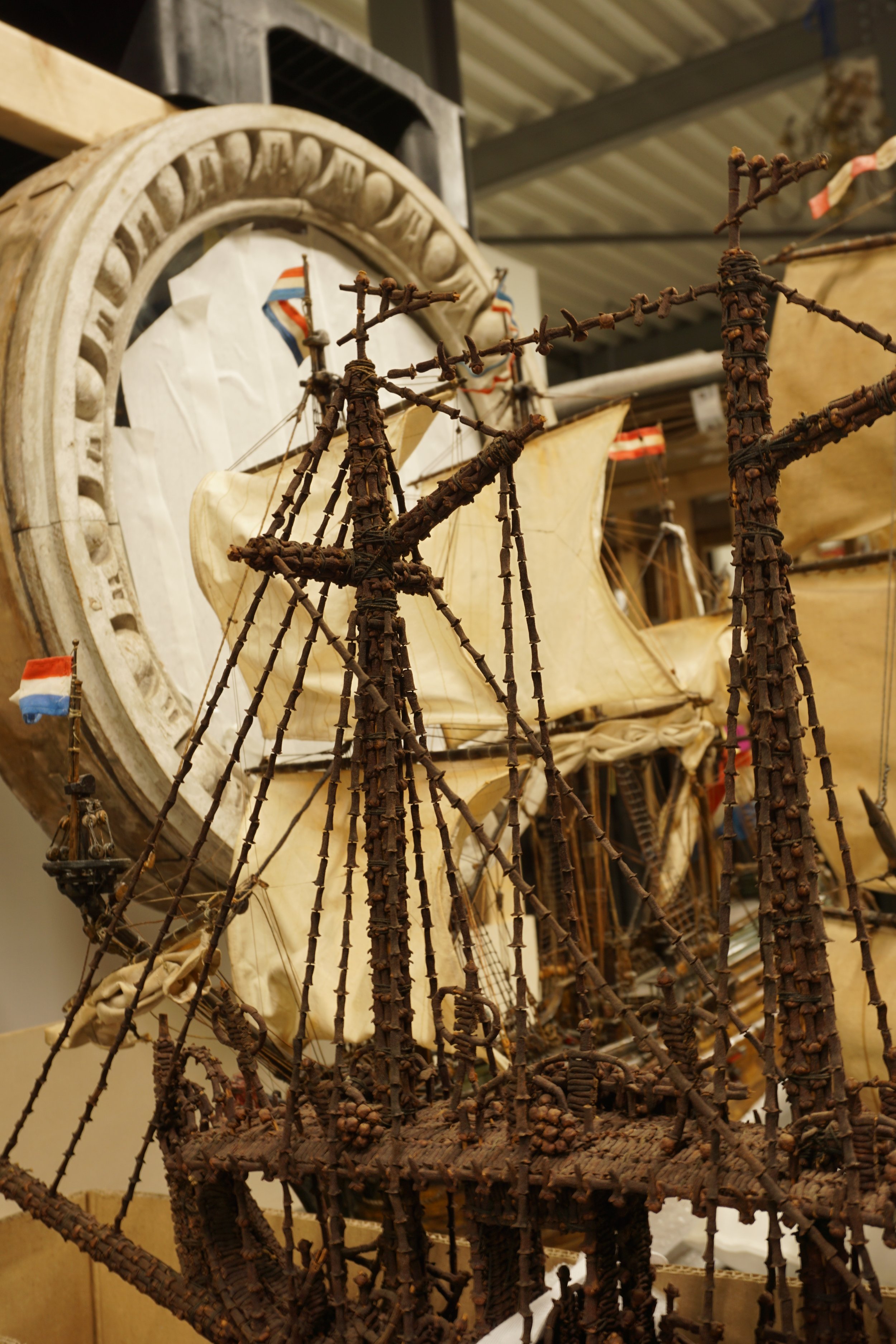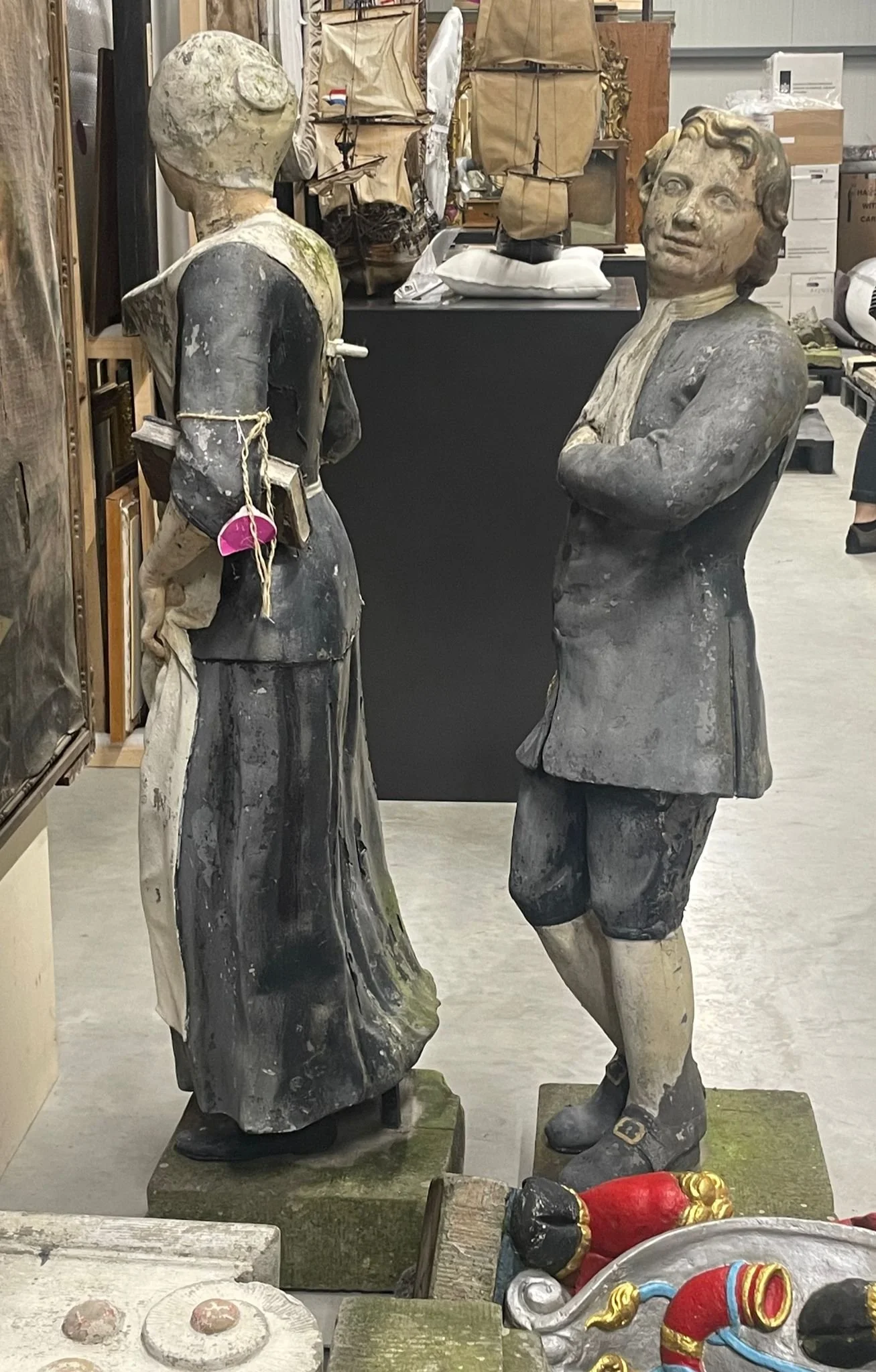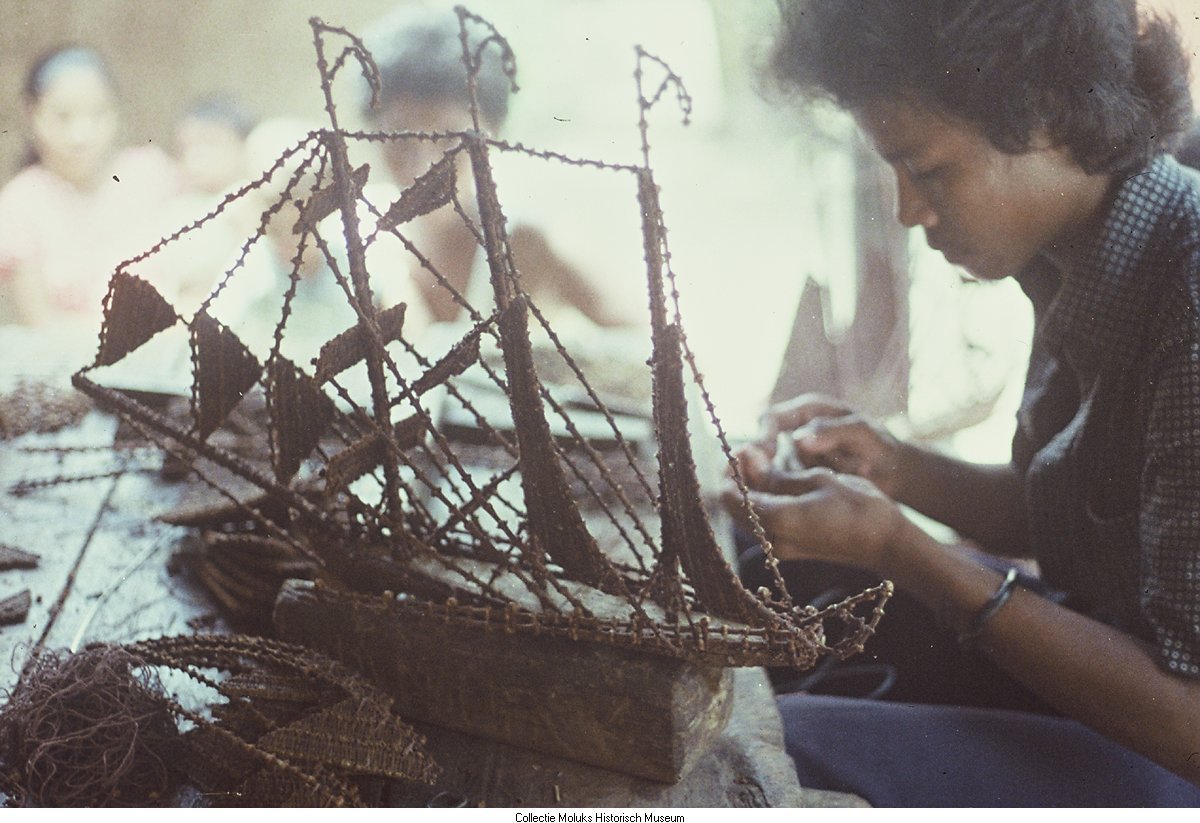Special loan at Hotel Maria Kapel
For the project Your Gold is not Our Glory by Mira Asriningtyas and Dito Yuwono, the Westfries Museum has loaned a 19th-century boat model made of cloves to Hotel Maria Kapel. This particular piece was made in the Moluccas (now part of Indonesia) in the 19th century and is on display leading up to-as well as during-the exhibition of the same name until 21 October.
The object represents a prau, a type of ship called Orembai or Arombai in the Moluccas, which was used by local monarchs for official occasions such as state visits. The production of clove (boat) models and other objects originated on Ambon in the early 18th century, during the time of the flourishing spice trade by the VOC and the colonial rule of the Netherlands in Indonesia. Shipwrights and other artisans worked on these objects as a pastime, using the materials available to them in abundance. They then sold them to Dutchmen, who often brought them home as souvenirs. This tradition lived on well into the 20th century, as a result of which several variants are now known in museums and collections throughout the Netherlands.
This 19th-century boat model has two masts and is manned by boatmen, also made of cloves. It is included in the collection of the Westfries Museum as an example of exceptional craftsmanship and as an artefact representing Hoorn's controversial historical relationship with Indonesia at the time of colonialism. As silent witnesses to a history of unprecedented prosperity at the expense of an oppressed population, the little ship invites us to decolonialise history and reflect on the terrible downside of a period we have so long mistakenly called a 'Golden Age'.
The Westfries Museum is a regional history museum that tells the cultural history of Hoorn and West Friesland, with a specific focus on the 17th century and Hoorn's VOC past. Besides the permanent collection, there are changing exhibitions that shed new light on history and provide different socio-cultural perspectives. Due to a large-scale renovation of the building - the 1632 dating former Statencollege at the Rode Steen in Hoorn's city centre - the museum is currently closed and the extensive collection of paintings, furniture, porcelain, militia pieces and historical artefacts is currently not on public display. However, there are several activities online and in the city that continue to tell the story of Hoorn. The museum expects to reopen in 2026. www.westfriesmuseum.nl





